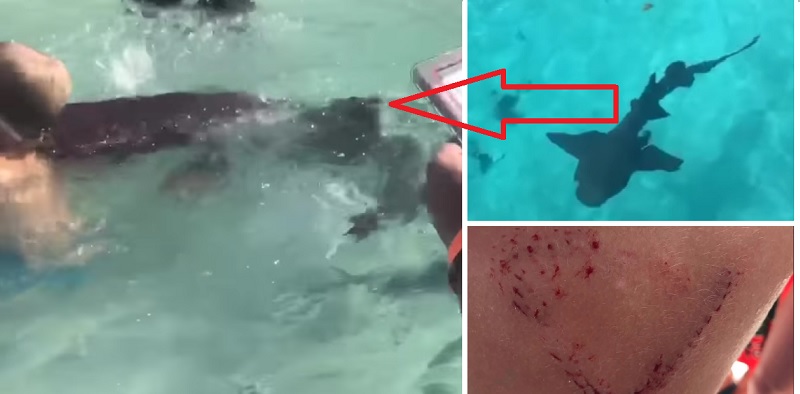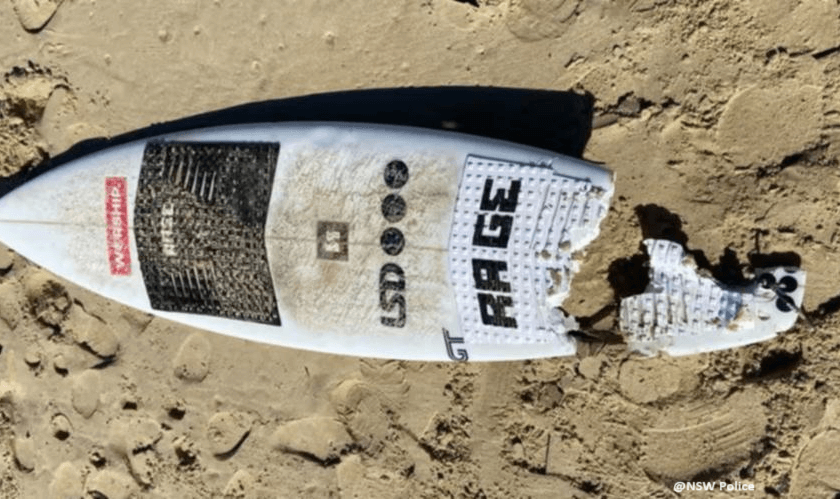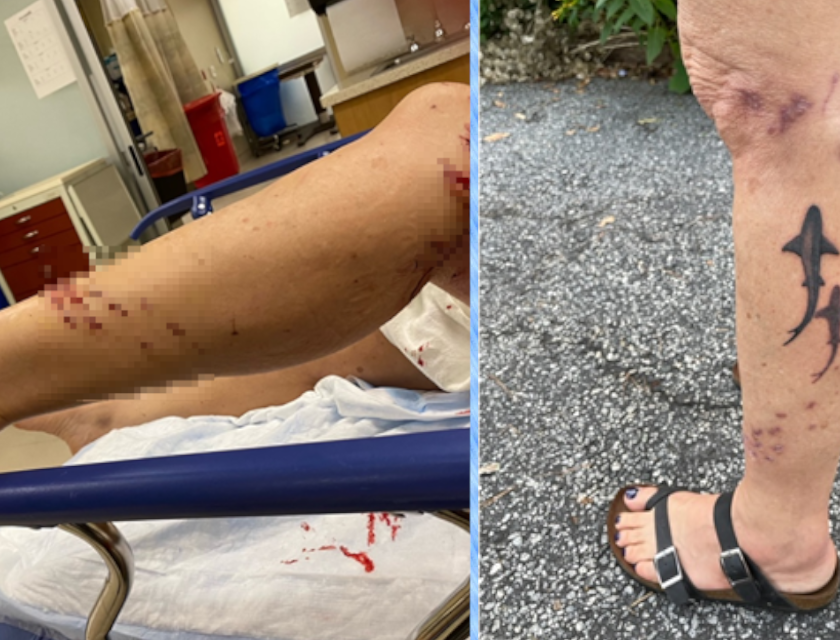A nurse shark bit a child during a shark encounter in the Bahamas.
Christine Jones and her family were on vacation when they read about an opportunity for a nurse shark encounter.
The event was presented as a way to interact with “friendly, docile” sharks that could be touched.
“We got in at our own risk, but we weren’t educated on the risk of what we were doing. We were told that they might suck on you [nurse sharks use suction to pull food into their mouths]. The shark might suck you, so keep your fingers out of the water,” Jones told Tracking Sharks.
While nurse sharks tend to be docile, they do have tiny teeth and will bite when provoked or searching for food—a fact the company forgot to mention to the Jones family.
As the Jones family and their friends slipped in the water at Compass Cay Nov. 9, they were surrounded by other tourists and 14 sharks.
Bait was thrown into the water and the nurse sharks swam around as tourists touched and petted the sharks.
Related: Rare video Spearfisherman films shark as it bites his friend’s head in the Bahamas
Around 1:30 p.m. Christine’s son Asher, using his dive mask, was exploring the shallow water watching seven sharks swim.
“There was one at my feet, so I jumped over it and then another one came up behind me and bit my back. It sucked me then bit me . . . it was digging into my flesh,” Asher said.
Asher’s father jumped into action, knocking the shark away and scooping up his 8-year-old son.
According to Asher, the two had difficulties getting out of the water because “adults were climbing up the ladder” before them.
A vacationing pediatrician examined the wound and approved an antibiotic spray used to clean Asher’s wound.
Asher is healing and will return to the water soon, as he is not afraid of sharks and isn’t mad at the shark that bit him.
His mother is learning more about sharks, and would not recommend for young children to be allowed to interact with nurse sharks, especially those that are actively being fed.
Nurse shark encounters are extremely popular in the Bahamas, but several minor bites have occurred in the Cays.
In July, model Katarina Zarutskie was bitten on her wrist at Staniel Cay Marina as she floated on her back posing with sharks for a photo. She was pulled under the water for a second but was happy to escape with her arm and life intact. The minor wound was treated with antibiotics.
Sarah Carroll was bitten Dec. 8, 2017, on her wrist in Compass Cay, at the same location where Asher was bitten. As Sarah was exploring the water, a large nurse shark approached from the side.
“I felt a whoosh of water, something clamped down on my arm and I assumed my husband was playing a prank on me,” she told Tracking Sharks about the incident. “Less than a second later I realized how much it hurt and looked past where my goggles were blocking my side vision to see the shark (bigger than myself) latched on to my arm.”
On March 1, 2017, adventure blogger Mareen was nipped on the hand while swimming near a private island south of the Exuma Cays Land and Sea Park.
Tracking Sharks encourages shark encounters; however, we advise against physical contact with sharks in the wild. It’s best to observe from a safe distance and just watch the sharks be sharks.
There have been a total of 98 shark attack bites (72 with injury, 22 of which are considered provoked*) publicly reported and verified in 2018. Five fatal**; 33 were reported in the U.S (including one fatal), with 13 occurring in Florida and 3 in Hawaii. Twenty-six have been reported in Australia, one fatal. Eight unconfirmed bites, worldwide, are not included in the total count.
All locations have been marked on the 2018 Shark Attack Bites Tracking Map.
*Provoked defined as spearfishing, feeding sharks, fishing, etc. (listed with green marker).
**Three possible scavenge.



